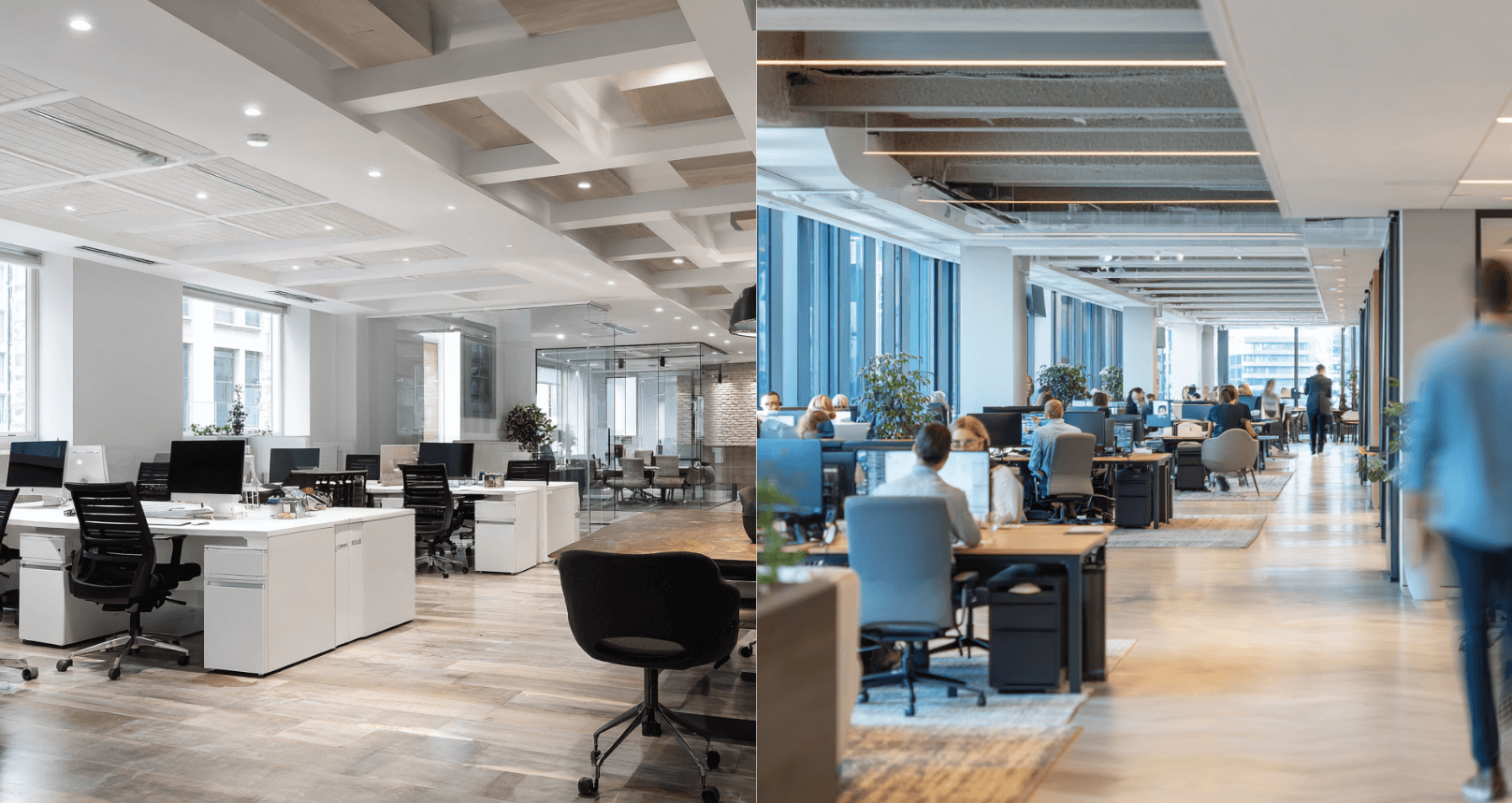From empty offices to thriving data centers? Unlocking new revenue streams
Data center conversions can be a highly profitable avenue for CREs looking to repurpose underutilized spaces.

The commercial real estate industry is grappling with an unprecedented challenge: a significant decline in traditional office occupancy. While many companies are exploring community-oriented spaces, rooftop restaurants, and other diversified use-cases, a growing number of property owners are eyeing data centers as a lucrative alternative.
The Rise of Data Centers
The importance of digital infrastructure has soared, given the ubiquity of internet access, the explosion of smartphone usage, and advancements in artificial intelligence. Research indicates that the global colocation data center market is expected to grow at a five-year CAGR (Compound Annual Growth Rate) of 11.3% from 2021-2026. The hyperscale market, home to large-scale data centers, is poised for even more rapid growth, estimated at a 20% CAGR. This presents a significant opportunity for commercial real estate owners, particularly because the supply of data center space is falling behind demand.
Despite the market's upward trajectory, there are significant bottlenecks. Essential components for building data centers are facing delays, and finding adequate space is a challenge that cuts across geographical boundaries. Plus, most of the new construction projects are pre-leased and won't be ready for occupancy until 2024.
Data Centers: An Opportunity for Office Spaces?
Could the vacancies in the traditional office market offer a solution? Turning office spaces into data centers offers a way to make these properties more useful and profitable. However, this isn't a straightforward transition; it comes with upfront costs and requires specific infrastructure, like uninterrupted power supply, high-speed connectivity, and cooling systems.
Geographical Considerations
Location plays a crucial role. Established data center markets like Northern Virginia, Dallas, and San Francisco offer a stable environment with well-developed enterprise ecosystems. However, secondary U.S. markets like the Pacific Northwest and Atlanta also show promise, as they face less competition but still experience rising demand.
Revenue Models
- Owner-Driven Conversion: This approach is potentially the most rewarding but also carries significant risks. The necessary infrastructure could cost upwards of $15 million and take 18 months to complete. After completion, a leasing group can help fill the space, letting the owner reap all financial benefits.
- Third-Party Partnership: Here, building owners lease the space to a third-party group, who then assumes the costs of construction and operation. This is a less risky venture for the owner, who gains steady rent payments.
- Hybrid Joint Venture: In this model, both the owner and the third-party share the expenses and rewards. This approach can balance the risks and benefits for both parties involved.
Additional Costs and Factors
Before jumping into conversion, property owners must undertake a feasibility study to determine space allocation, cabling, switching, and engineering requirements. It's also crucial to consider heating, ventilation, and air conditioning (HVAC) aspects as data centers require specialized cooling systems.
A strong alternative
Data center conversions can be a highly profitable avenue for commercial real estate owners looking to repurpose underutilized office spaces. While not a one-size-fits-all solution, for many properties, it represents a strong alternative to traditional leasing models, offering a promising pathway for generating significant new revenue.
Key Takeaways

DisruptCRE founder shares how corporate real estate is changing
Companies are moving employees from underutilized offices into "space as a service” options with utilization data.
Watch now
Half of offices are empty but you still can’t find a meeting room
Employees waste up to 30 minutes a day looking for a meeting room to meet in workplaces.
Read moreMost recent

Space waste: The industry’s naughty and nice list
Our sensors spilled the beans: What industry is winning, who's wasting and who's hogging your office real estate.
.png)
Improve your occupancy sensor RFP with our best practice guide
Discover essential questions to simplify your occupancy sensor RFP process and confidently choose the right vendor.

Does RTO actually work? A webinar debate with the data
Density’s RTO data sparks debate between a pro-office CEO and a remote-friendly workplace strategist.

A workplace love story: Phone booth meets sensor
Phone booths are booming—and occupancy sensors help companies manage and measure them with ease.
Explore other Density Products
Atlas for Workplace
Insights for the workplace that help you cut costs and deliver better spaces.
Learn more